"You Can Escape the Big Promotion, But Not the Big Promotion Games."
Last year during 618, I spent 15 days raising a "cat" and earned a grand total of 2.5 yuan.
I can't blame the meager wool I reaped; I can only say that working "an hour for a few cents" is truly exhausting.
Not only did I have to "instigate" my colleagues to join the team every day, but I also had to "coax" friends to raise cats together. We worked together for more than half a month, just to successfully secure the "huge red envelope" of 61.8 yuan in this "1 billion yuan division" project.
Although this year's cat-raising project has shrunk to 500 million yuan, the "Metaverse Shopping" (virtual shopping venue) that Taobao is working on optimizing overnight has already become a hot topic for this 618. From the 33-second preview video circulating online, we learned that this Taobao Metaverse will have virtual scene buildings such as skyscrapers, large shopping malls, and movie theaters. Consumers can also complete various interactive actions through virtual human operations.
Netizens said: "This year, Taobao not only wants me to raise cats but also wants to teach me how to be a human."
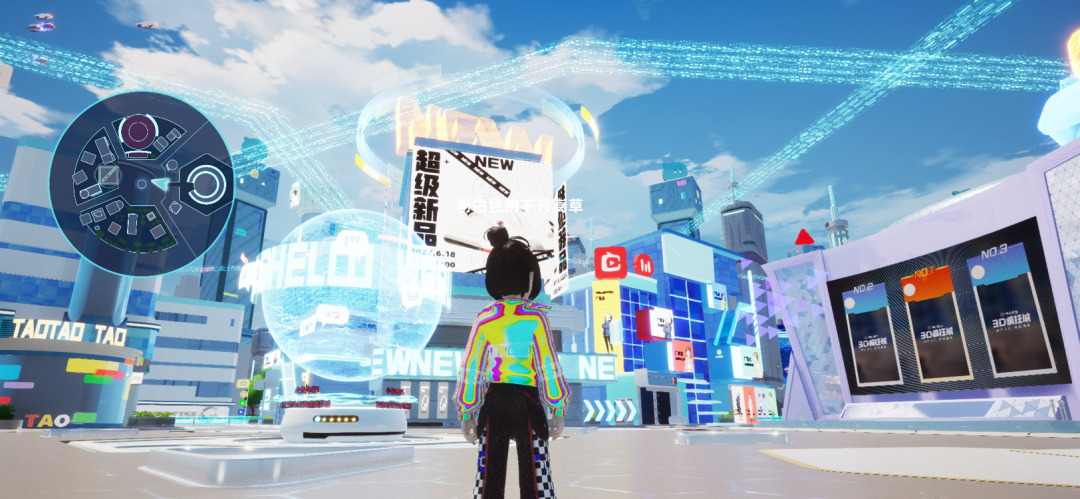
Taobao 618 Meetaverse Shopping Schematic Diagram
01
People of all ages are flocking to games.
Young people's Honor of Kings, middle-aged people's Legend of Mir, and elderly people's Doudizhu.
Traditional stereotypes often depict gaming as exclusive to young people, while older demographics (45+) are considered insulated from it. However, this view is not entirely accurate.
The "2022 Gamified Marketing Insights Report" released by Moxi Technology mentions that the flourishing of gamified marketing is backed by the advent of a new consumption era. While games have captivated 364 million young consumers, they have also attracted over 48 million older players.
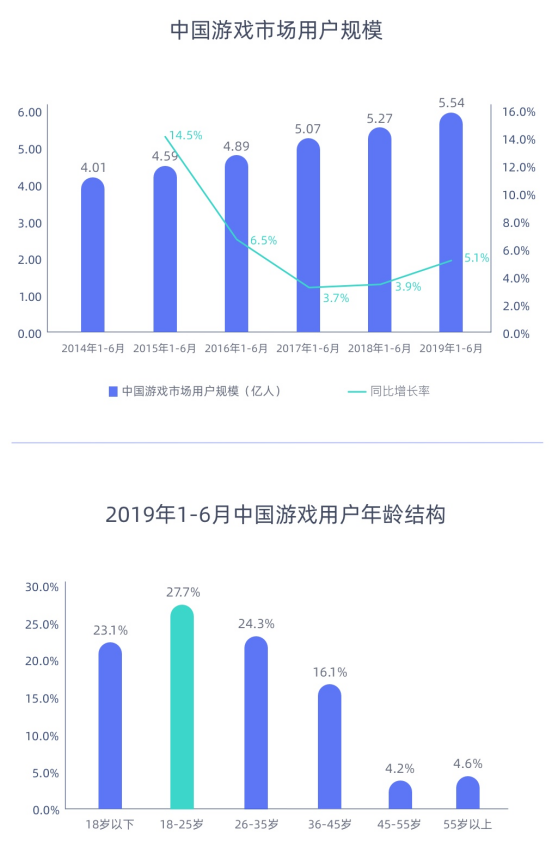
Data Source: Gamma Data
Today, legendary games are still deeply loved by middle-aged people, even becoming the "goji berry" of middle-aged entertainment. There are countless cases of older players like "I had a three-day cold war with my spouse over fighting for an iPad to play Doudizhu." There was even a widely circulated screenshot on social media of a WeChat Moment showing a "Level 5 Zhao Yun at 3 a.m. belonging to a 60-year-old lady," with netizens jokingly commenting, "My grandma is Changshan Zhao Zilong."
This shows that with the popularization of the Internet, games are no longer attracting only young people. The person who "crits" you in the King's Canyon may not be a third-grade elementary school student, but a retired lady fighting through the night...
02
The Toughest 618: Brands Turn to Games to Win Over Customers
Amidst the intense competition for online traffic, this year's 618 shopping festival is considered unprecedentedly difficult.
Interestingly, while the hype around the festival has been decreasing, the number of brand games has increased.
Unlike the previous two years, where e-commerce games were the sole focus, the concept of gamification has matured, and new consumer brands such as Genki Forest, Chicecream, and Adopt a Cow have joined the ranks of gamified marketing. Traditional consumer brands like Yili and Mingren are also embracing innovation.
These brands have successfully achieved marketing goals such as attracting new customers, increasing user stickiness, and improving order conversion through various types of marketing games, including cloud farms, elimination games, and synthesis games.
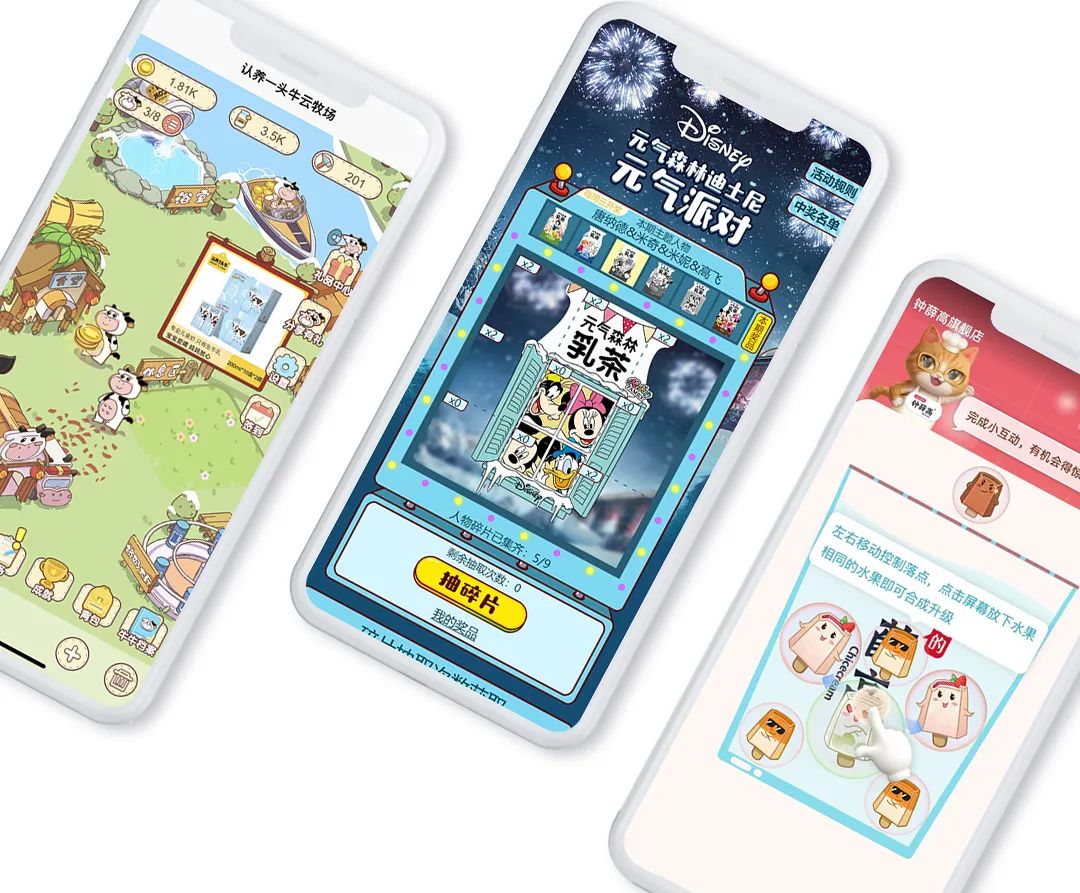
Moxi Technology Gamified Marketing Cas
03
Controversial Yet Popular: Why?
600 million people wake up early and stay up late on Alipay to plant trees together;
Over 50 million people water their plants online in the Baba Farm every day;
Since the launch of Ant Manor, netizens across the country have donated over 15 billion eggs.
Even though the "building construction" game became popular in a somewhat controversial way, and last year's "cat raising" was often criticized, with product managers of several popular games/activities being "scolded badly" online, the data showing millions or even tens of millions of UVs for e-commerce games indicates that mini-games, as a marketing tool, do possess unique value characteristics that traditional marketing cannot match.
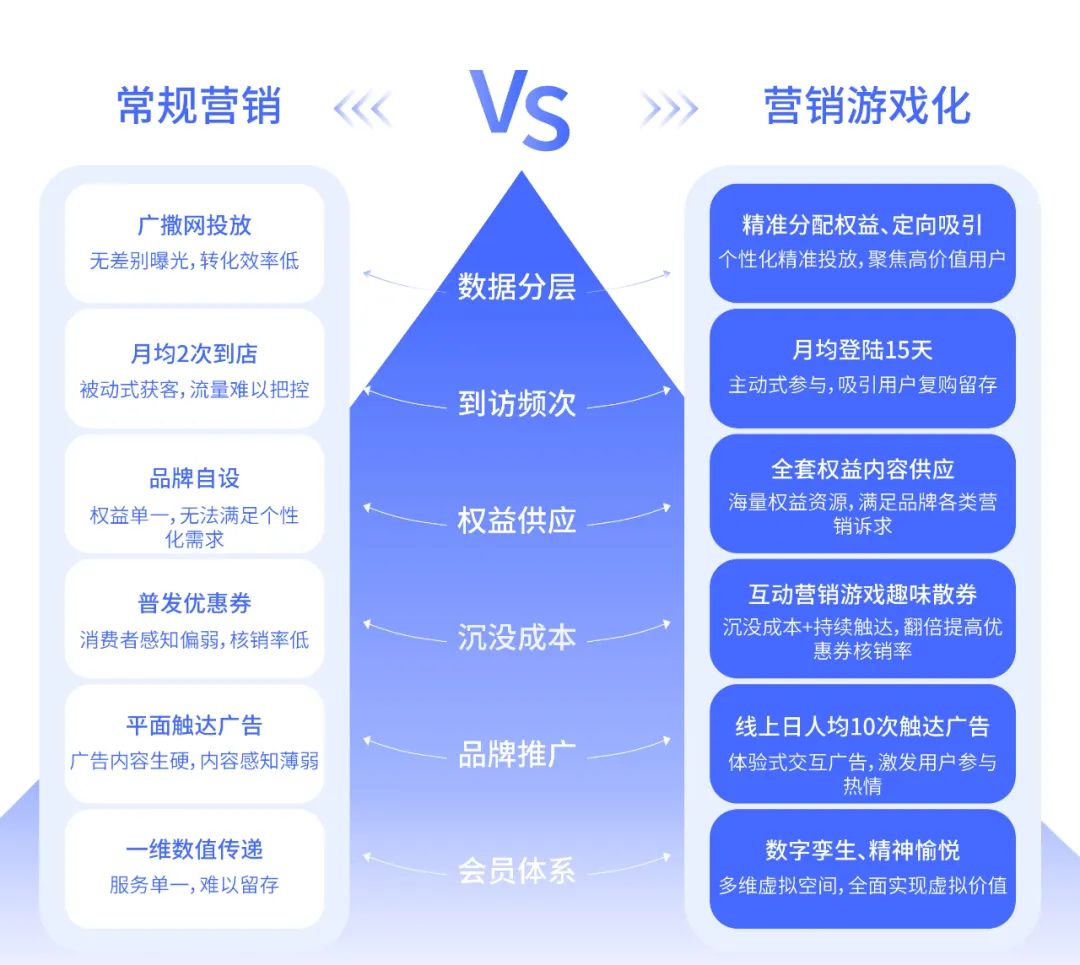
Advantages of Gamified Solutions
1. No worries about acquiring new members, with an average fission of over 5 people per person
Traditional "bargaining" or "helping" to share new products may make people feel like you're taking advantage of small gains, but asking people to water plants won't make you feel embarrassed at all.
The appeal of the game itself drives consumers to spontaneously complete a series of sharing behaviors. By packaging the original interest-related sharing behaviors into fun social interactions such as "I want to revive," "water my tree," or "help me feed the chicken," more new users are attracted to participate, thereby reducing the overall cost of acquiring new customers. This is the magic of game-sharing scenarios.
During Christmas, Moxi Technology created the popular WeChat Moments game "Red Carpet Makeup Party" for high-end beauty brand CT (Charlotte Tilbury). Through strong fission among players, the game successfully launched the brand's first interactive marketing campaign in the domestic market.
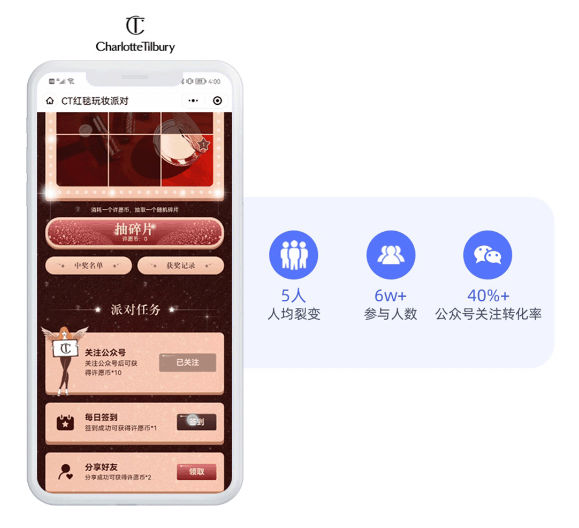
Charlotte Tilbury x Moxi Technology: Red Carpet Makeup Party
2. 30 minutes per day, capturing users' entertainment time
User dwell time has always been a zero-sum game, with major platforms/brands constantly seeking better solutions to attract consumers.
The natural fun of games can occupy more of consumers' time, effectively increasing user stickiness and usage time, thereby bringing more commercial value to brand marketing. The "2022 Gamified Marketing Insights Report" shows that 58% of young people spend 10-30 minutes a day playing marketing games, 67% of consumers are willing to play for more than 10 days, and some even stick with long-term games for more than half a year, such as Ant Forest.
During Double 11 in 2021, Moxi Technology provided Genki Forest with the "Genki Elimination" game, with a total of 150W+ participants and an average daily online time of about 20 minutes per user. User retention, game duration, and membership penetration ranked first among Taobao shopping mini-programs during Double 11, and the order conversion rate increased sixfold!
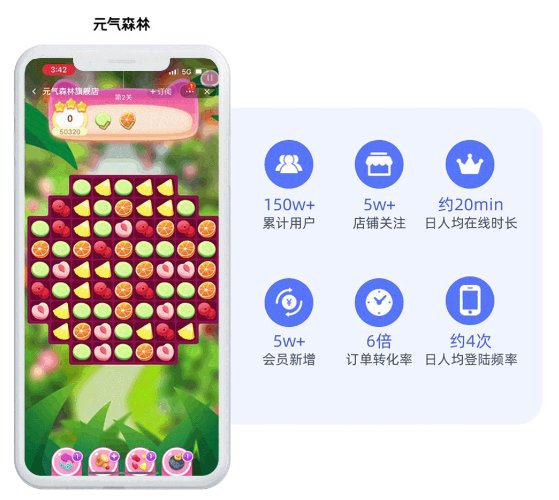
Chi Forest x Moxi Technology: Chi Elimination
3. Over 100 million impressions, making the brand "remembered" in the game
Elevator and subway advertisements are often annoying, but their promotional intensity and accuracy are unmatched by other media. Due to space limitations, small numbers, and highly uniform specifications, design, and appearance, consumers are prompted to form a unique visual and cognitive impression.
Gamified marketing builds on this foundation by combining brand IP to create more interesting interactions. It deeply integrates the visual elements of brand products with game scenes, displaying relevant brand words in multiple places, allowing consumers to deepen their brand impression while playing the game, further understand product features, and thus be quietly influenced in their consumption decisions.
During this year's 618, Moxi Technology created a simulation management and synthesis game for Taobao called "Little Mei's Courtyard," where players cultivate various types of magical crops and simulate the management of an old house courtyard, further stimulating consumers' desire to collect, explore, and share. The game accumulated over 5 million active users in two weeks, with a daily ad view rate of up to 80% and over 100 million brand impressions.
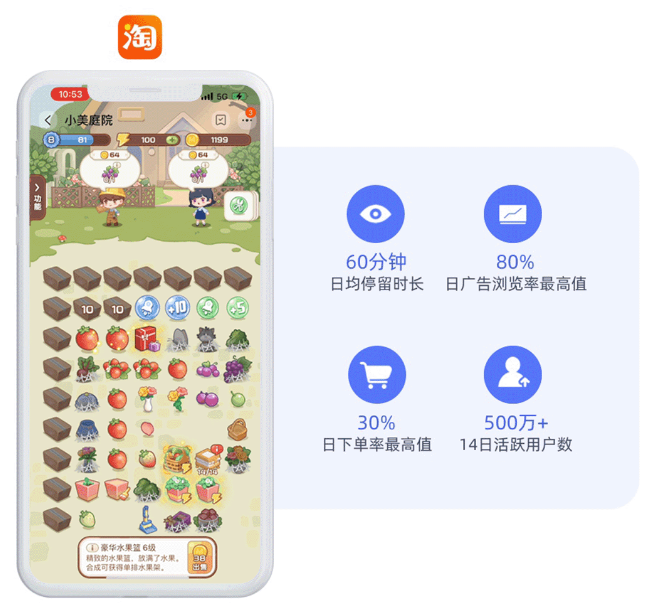
Taobao x Moxi Technology: Beauty Garden
4. Replacing physical rewards with virtual benefits, reducing customer acquisition costs to as low as 15 cents
Early subsidy variations helped brands achieve rapid dissemination but still relied heavily on rewards. High subsidies not only burdened platforms and brands but also lost their appeal to consumers. The severely involutionary and homogenized marketing market urgently needed a new approach.
The reason why Baba Farm can drive hundreds of millions of users to voluntarily complete daily check-ins, memberships, and watch ads is not solely due to the reward of "a box of free fruit." The game's setting based on real farms, the fun experience of simulated planting, and the sense of mission to help farmers increase income are the main driving forces for consumers to complete marketing tasks.
Replacing physical rewards with virtual value can further help brands reduce costs and increase efficiency.
Moxi Technology provided Estée Lauder's Tmall flagship store with a multi-person quiz game, where each yuan of prize value directly led to nearly 8 times the GMV amount, with customer acquisition costs as low as 15 cents.
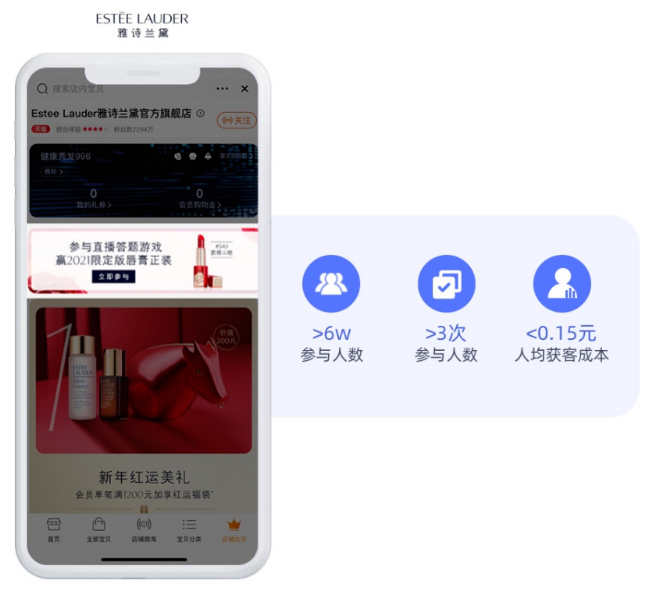
Estee Lauder x Moxi Technology: Quiz Whirlwind
5. Battle records and hot chats: triggering UGC world-of-mouth marketing
As the cost of KOL endorsements continues to rise, the concept of UGC (User Generated Content) has gradually entered the plans of marketing operators. After all, consumers trust content generated by real users more, just like Douban's movie reviews, which are a reference for many people when choosing movies.
In this regard, the challenge and excitement of games can constantly stimulate users' desire to win or lose, thereby encouraging players to share in order to gain opportunities for revival or upgrades. At the same time, games can also create multiple strong sharing points through personal tags or battle record rankings, further stimulating users' desire to share and forming traffic fission, just like the "battle record sharing" of the MVP in Honor of Kings.
In the "Cloud Ranch" game created by Moxi Technology for Adopt A Cow, consumers become dairy farm owners and simulate breeding operations. Through the spontaneous social sharing of Cloud Ranch players, the game achieved rapid growth from 0 to 50,000 participating users within a week.
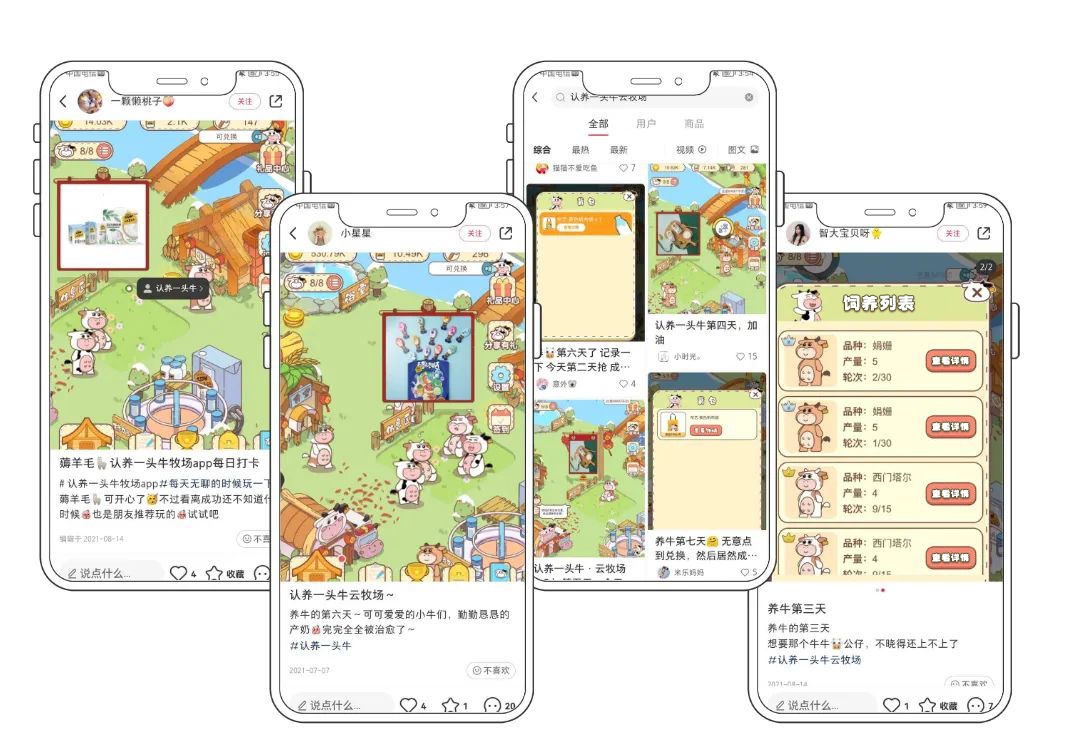
6. Engaging people with games, creating new consumption experiences
The "Post-95s Data Report" released by Social Talent shows that 71% of post-95s prefer experiential consumption. Gamified marketing, with the inherent entertainment value of games, continuously increases user dwell time and potential transaction opportunities through content mapping and fun social interactions, becoming a new revolution in brand marketing.
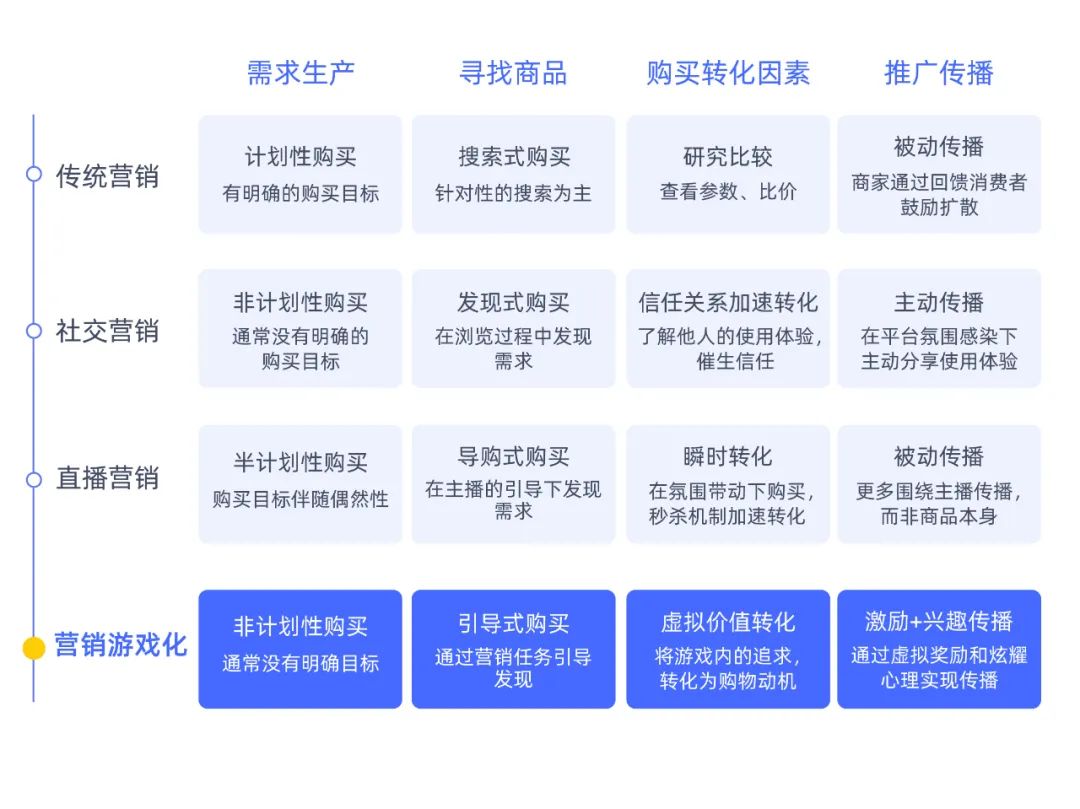
Comparison of consumer decision-making pathways
Currently, marketing games have become frequent "guests" in key resource positions on many mainstream platforms, serving as important carriers for platforms to attract users.
Alimama's official report shows that the overall deduplicated MAU of marketing games is 260 million, with a year-on-year growth rate of over 40%.
Youzan, as a private domain traffic platform for many brands, has seen its mini-game market GMV grow by over 420% year-on-year.
7. Building virtual spaces to cultivate brand private traffic pools
Traditional interactive marketing scenarios are highly fragmented, resulting in low consumer loyalty and failing to generate long-term, effective value accumulation for brands.
To address this, Moxi Technology will launch "Moxi Space," empowering brands to independently create and nurture virtual spaces for their members. By replicating real-life consumer IPs into digital twins (virtual humans), user data is accumulated; virtual spaces are used to satisfy consumers' virtual social behaviors; and online membership levels and identity tags are established, linked with offline activities, and generate real benefits.
"Moxi Space" will transform consumers' game behavior and commercial behavior into NFT digital assets, cultivate user habits, continuously enhance brand identification, and form a long-term binding relationship between brands and consumers. This helps brands easily achieve marketing goals such as pre-launch hype, traffic acquisition and revenue generation, user activity and retention, point consumption, and private traffic cultivation.
In the future, when you order a pair of sneakers in the real world, your digital twin in "Moxi Space" will also obtain ownership of this pair of "virtual sneakers." It encompasses both digital replicas of the real world and original creations in the virtual world. This is just the beginning, and the future holds immense potential for imagination.
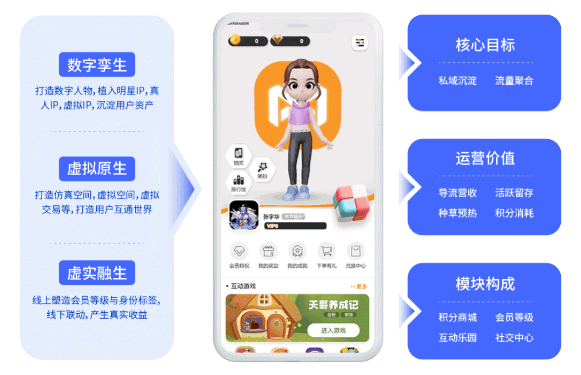
Moxi space: creating virtual online spaces for brands and consumers
Currently, marketing games are playing an increasingly crucial role in holiday promotions and private domain operations. As more players enter the field, standing out from similar products will become a new challenge for brands and platforms alike.
Now, Taobao's "Meow Games" has arrived as scheduled, and the "Metaverse Venue" has also made a belated appearance. Perhaps in the near future, we will have our first delivery address in this digital migration. We sincerely wish the product managers of this year's promotional games won't be "scolded badly" again.
Author's note
This article is the second part of the gamification trilogy - the value chapter. It explains the essence and value of gamification through the analysis of target audiences and gamification marketing mechanisms. The first part discusses the trends and current status of marketing gamification.
The third part is a case study chapter, where we will provide detailed breakdowns of private traffic building cases from well-known brands such as Xinhua News Agency, Ctrip, Genki Forest, Adopt a Cow, and Keep. Stay tuned for more!
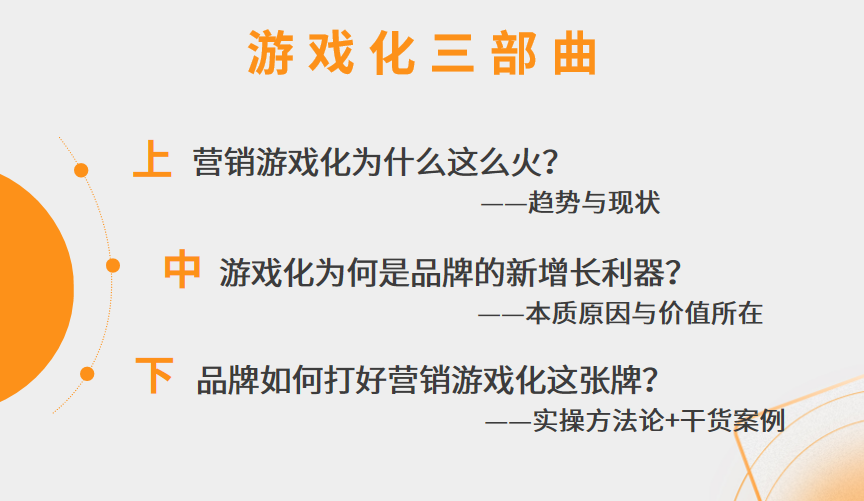
References:
-
Gonghaobang: "Is the coldest 618 coming?"
-
Ad Maniac: "Big brands are playing mini-games!"
-
Burning Dimensions: "25 million seniors are playing games."
-
Youxituoluo: "The overlooked demographic in mobile casual games - middle-aged and elderly users."
-
Guohe Boke: "Tired 618, even 'raising cats' can hardly stimulate young people's enthusiasm!"
-
Brainless Operations: "Double 11 'Meow Candy' game, I didn't expect to be the one getting fleeced!"
-
Zinc Finance: "Is 'Metaverse Shopping' popular this 618? Taobao is building a virtual city, currently in the grey testing phase."
-
Moxi Technology: "Where have the young people 'besieged' by the epidemic gone? | 2022 Gamification Marketing Insights Report"
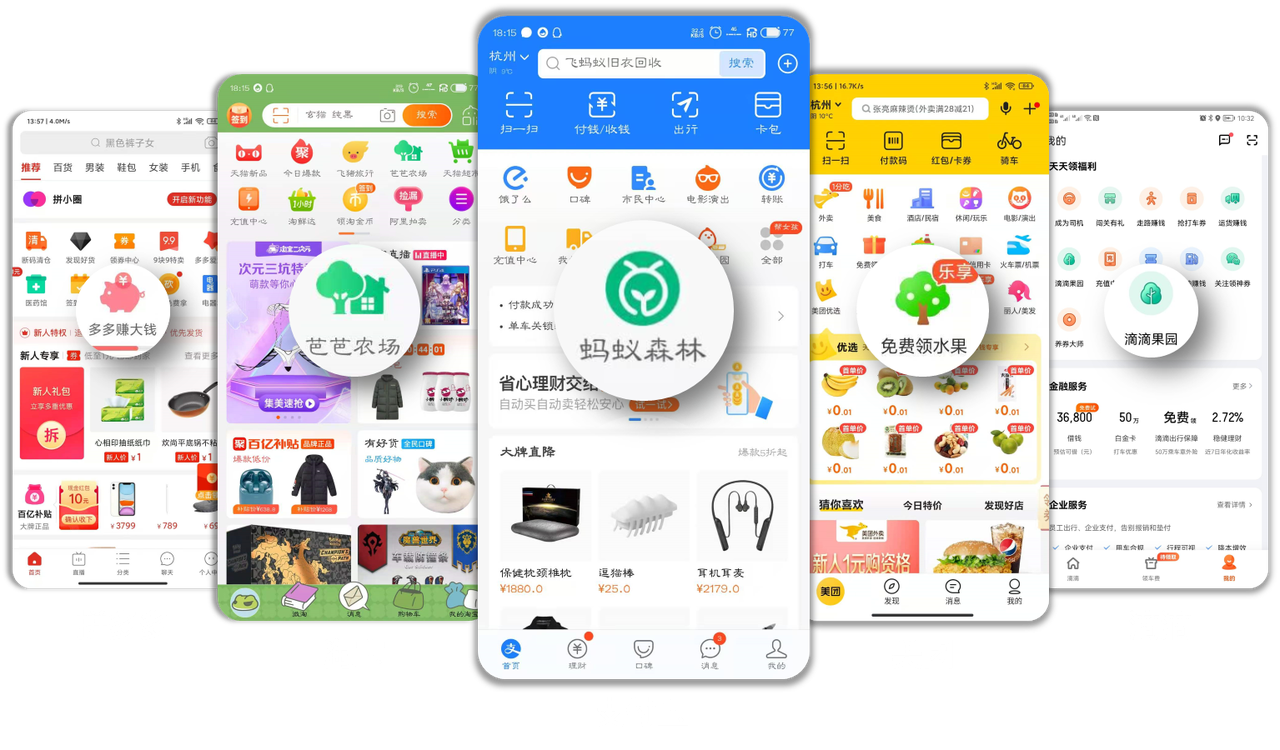
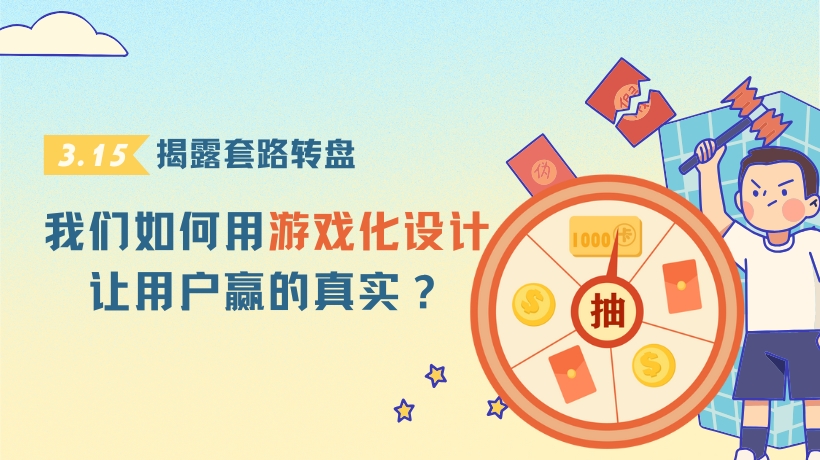
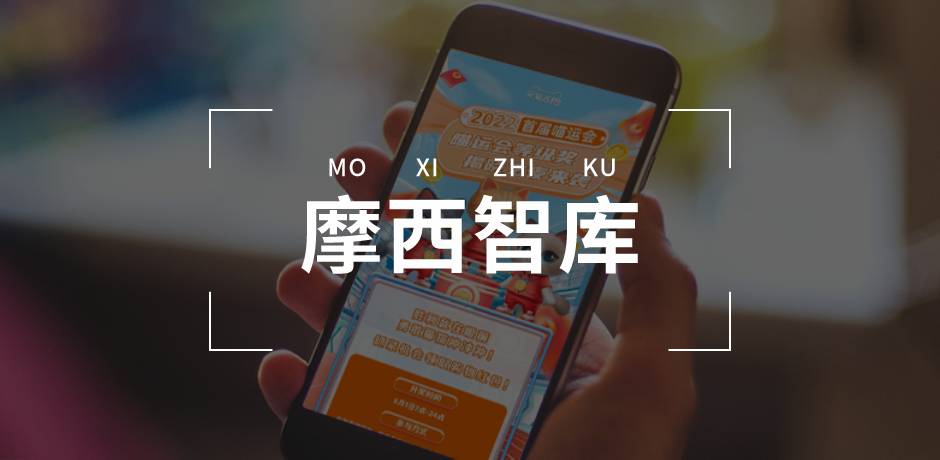
 扫码领取白皮书
扫码领取白皮书 人才招聘
人才招聘